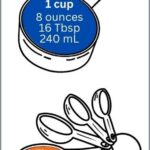Diarrhea and vomiting are common ailments that can affect anyone, from adults to children and babies. Often triggered by a stomach bug, these conditions are usually short-lived and resolve within a few days. Whether you’re experiencing diarrhea and vomiting together or separately, the primary concern is managing symptoms and preventing dehydration. This article will guide you through the typical duration of diarrhea, effective self-care strategies, and when it’s crucial to seek medical advice.
Typical Duration of Diarrhea and Vomiting
Understanding how long diarrhea and vomiting usually last can help ease anxiety and guide your recovery expectations. In both adults and children, the typical duration for these illnesses are:
- Diarrhea: Generally subsides within 5 to 7 days.
- Vomiting: Usually resolves much quicker, often within 1 to 2 days.
It’s important to note that these are typical timelines. Individual experiences can vary based on the cause of the illness, the person’s age, and overall health. While most cases clear up on their own within this timeframe, knowing when to seek medical help is essential.
Self-Care Strategies for Diarrhea and Vomiting at Home
For most cases of diarrhea and vomiting, home treatment is sufficient. The cornerstone of self-care is staying hydrated to combat fluid loss. Here’s a breakdown of what you should and shouldn’t do:
What To Do When You Have Diarrhea and Vomiting
- Stay Home and Rest: Allow your body to recover by getting ample rest. Staying home also prevents the spread of infection to others.
- Drink Plenty of Fluids: Dehydration is a significant risk with diarrhea and vomiting. Consume fluids like water or diluted squash. If you feel nauseous, take small, frequent sips.
- Continue Breast or Bottle Feeding for Babies: For infants, continue breastfeeding or bottle-feeding. If your baby is vomiting, try offering smaller feeds more frequently.
- Water for Formula-Fed Babies: Give babies on formula or solid foods small sips of water in between their regular feeds to keep them hydrated.
- Eat When You Feel Able: Don’t force yourself to eat, but when your appetite returns, opt for bland, easy-to-digest foods. It’s wise to avoid fatty or spicy foods initially.
- Pain Relief with Paracetamol: If you’re experiencing discomfort or fever, paracetamol can help. Always follow the dosage instructions on the packaging, especially when giving it to children.
Image alt text: A person gently sipping water from a clear glass, emphasizing the importance of hydration during diarrhea and vomiting.
What To Avoid When You Have Diarrhea and Vomiting
- Avoid Fruit Juice and Fizzy Drinks: These beverages can worsen diarrhea due to their high sugar content, which can draw more water into the intestines.
- Do Not Dilute Baby Formula: Always prepare baby formula at the recommended strength. Diluting it can deprive your baby of necessary nutrients.
- Avoid Anti-Diarrheal Medicine for Young Children: Do not give anti-diarrheal medications to children under 12 years old unless specifically advised by a doctor.
- Do Not Give Aspirin to Children: Aspirin should not be given to children under 16 years old due to the risk of Reye’s syndrome.
Preventing the Spread of Diarrhea and Vomiting
Diarrhea and vomiting are often caused by contagious infections that can spread easily. Taking precautions is crucial to protect yourself and others:
- Stay Home: Remain off school or work until you have been symptom-free for at least 2 days. This is critical to prevent outbreaks, especially in schools and workplaces.
- Frequent Handwashing: Wash your hands thoroughly with soap and water, especially after using the toilet and before eating.
- Laundry Hygiene: Wash any contaminated clothing or bedding separately in a hot water cycle to kill germs.
- Disinfect Surfaces: Regularly clean and disinfect toilet seats, flush handles, taps, countertops, and door handles every day to eliminate germs.
- Avoid Food Preparation for Others: If possible, refrain from preparing food for other people while you are ill to prevent potential contamination.
- No Sharing Personal Items: Avoid sharing towels, washcloths, cutlery, and utensils with others to prevent germ transmission.
- Avoid Swimming Pools: Refrain from using swimming pools until at least 48 hours after your symptoms have completely stopped to prevent water contamination.
Image alt text: Close-up of hands being washed with soap under running water, highlighting proper hand hygiene as a key measure to prevent the spread of diarrhea and vomiting.
When a Pharmacist Can Help
In some situations, a pharmacist can provide helpful advice and recommend over-the-counter treatments for diarrhea and vomiting. Consult a pharmacist if:
- You or your child (over 5 years old) show signs of dehydration: Symptoms include dark urine, strong-smelling urine, or reduced urination.
- You are an older adult, have a weakened immune system, or pre-existing health conditions: These factors can increase the risk of dehydration and complications.
- You need temporary relief from diarrhea: For situations where you need to temporarily control diarrhea symptoms, such as before traveling.
Pharmacists might recommend:
- Oral Rehydration Solutions (ORS): These are powder sachets mixed with water to replenish lost electrolytes and fluids, crucial for rehydration.
- Anti-Diarrheal Medications: For adults and older children, medications like loperamide can help reduce diarrhea symptoms for short-term relief. However, these are generally not suitable for children under 12.
You can easily locate a pharmacy for immediate advice and assistance if needed.
When to Seek Urgent Medical Attention
While most cases of diarrhea and vomiting are manageable at home, certain symptoms warrant immediate medical attention. It’s crucial to know when to seek urgent care. Call emergency services or seek immediate medical help if you or your child experience any of the following:
- Babies under 12 months: If you are worried about a baby under 12 months old.
- Infants refusing feeds: If your child stops breastfeeding or bottle-feeding while ill.
- Dehydration in young children: If a child under 5 years shows signs of dehydration, such as fewer wet diapers than usual.
- Persistent dehydration: If dehydration signs continue in you or your child (5 years or older) even after using oral rehydration solutions.
- Inability to keep fluids down: If you or your child are vomiting so much that you cannot keep down any liquids.
- Bloody diarrhea or rectal bleeding: The presence of blood in diarrhea or bleeding from the bottom is a serious symptom.
- Prolonged symptoms: If diarrhea lasts for more than 7 days or vomiting continues for more than 2 days.
Seek immediate medical attention (Call 999 or go to A&E) if you or your child experience:
- Vomiting blood or coffee-ground like vomit.
- Green vomit (adults) or yellow-green/green vomit (children).
- Suspected poisoning.
- Stiff neck and pain when looking at bright lights.
- Sudden, severe headache.
- Sudden, severe abdominal pain.
- Blue, grey, pale, or blotchy skin, lips, or tongue.
- Severe breathing difficulties or rapid, shallow breaths.
- Confusion or unresponsiveness.
Understanding the severity of pain can also guide your decision: severe pain is constant, debilitating, and prevents sleep and normal activities; moderate pain is always present, disrupts concentration and sleep; mild pain is intermittent and doesn’t significantly interfere with daily activities.
Common Causes of Diarrhea and Vomiting
The majority of diarrhea and vomiting cases are triggered by:
- Stomach bugs (viral gastroenteritis): These are infections of the gut, often caused by viruses like norovirus or rotavirus.
- Food poisoning: Consuming contaminated food can lead to bacterial or toxin-induced diarrhea and vomiting.
Image alt text: A table listing various causes of diarrhea and vomiting separately, including stomach bugs and food poisoning as common reasons, and other potential medical conditions.
While less common, diarrhea and vomiting can also be symptoms of other underlying health conditions.
In Conclusion
Diarrhea and vomiting are typically short-term illnesses that resolve within a week. Effective home management, focusing on hydration and rest, is usually sufficient. However, it’s vital to recognize when symptoms become serious and to seek prompt medical advice. Knowing how long diarrhea usually lasts and when to escalate care can ensure timely and appropriate treatment, leading to a quicker recovery and preventing potential complications.

